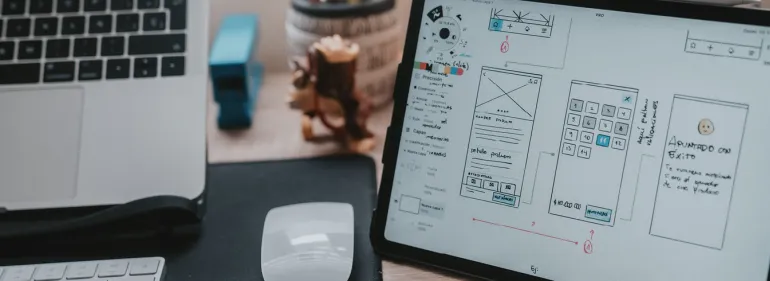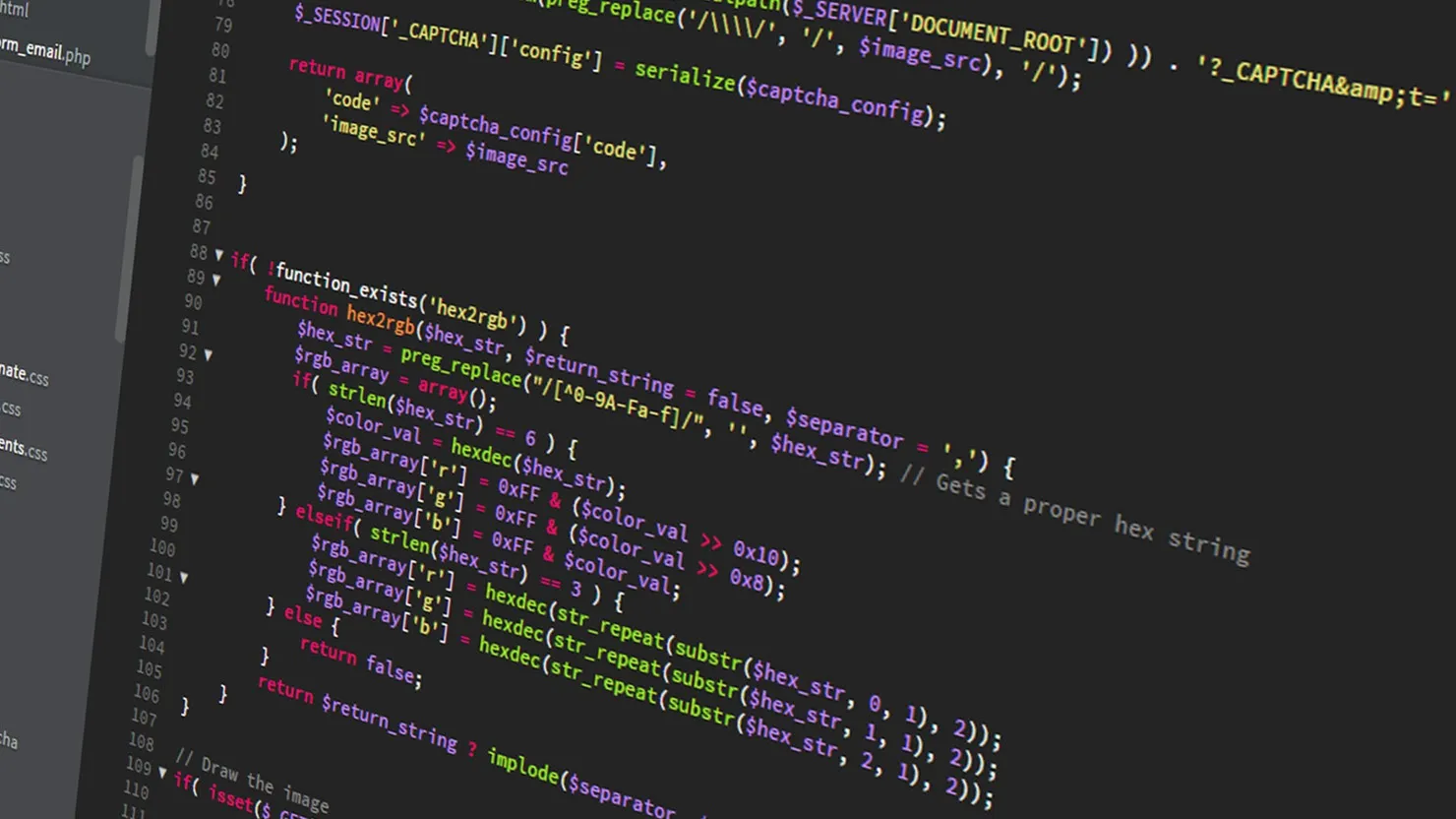Certificate in Advanced Web, Interaction and UX Design

Course Overview
This course is perfect for any creative who wants to take a serious step in the web, interaction and UX design world.
It focuses on the development and application of digital design skills in the context of web, interaction and user experience (UX). This part-time, blended, Level 8 programme is comprised of three modules - Web Design, Interaction Design, and Advanced Web Design – delivered over two semesters. On this programme, learners gain valuable knowledge of and skills in key subject areas of web application and develop practical skills.
Why Study Web, Interaction and UX Design at Griffith College?
On this programme, learners gain valuable knowledge of and skills in key subject areas of web application and develop practical skills used for the design and management of online communication. They gain a thorough understanding of concepts, theories, methodologies, and practices within UX, interaction design, and user interface design. The programme also focuses on usability and advanced concepts of commercial web design and development.
Course Highlights
- Studio classes are delivered live, with hands-on projects, and supported by blended and online learning.
- Taught and led by experienced designers
- Be part of a multi-award-winning faculty.
- The faculty has an excellent reputation for teaching and learning, with a student-centered approach.
- The design department has strong industry links and projects are industry-led.
- Full access to Student Adobe Creative Cloud - 20+ cutting-edge creative tools for desktop, mobile, and web
Intake Dates
- Dublin - Part-Time - February 2025
Course Details
This programme is aimed at learners from design or creative industries or digital marketing, or business owners who have experience in Adobe CC. It is also for those who are already working in communication design/media and creative industries and wish to considerably advance and enhance their digital skills, and receive formal certification for these.
The certificate consists of three modules specifically selected to give learners the skills needed for any creative who wants to take a serious step in the web, interaction, and UX design world: Web Design, Interaction Design & Advanced Web.
Course Modules
This module equips learners with the skills to achieve creative design solutions by formulating a problem-solving approach and successfully representing their vision through basic code. Learners work through project briefs which introduce various stages of design and development.
The internet has become the dominant medium by which digital media is delivered and used worldwide. This module explores the web as a channel of communication, looking at technology, design, business, and cultural issues. Through a range of practical assignments, learners engage with different types of web applications and develop practical skills used for the design and management of online communication.
This module surveys the key principles and processes of human-centered interaction design across a range of contexts: from screen, software applications, and products to constructed environments. In a studio environment, learners experience an overview of the discipline and of the different professional roles a designer may play. This broad framework allows learners to contextualise their more specialised future courses of study and understand the methods and applications of interaction design.
Learners develop skills in sketching the user experience through low-fidelity prototyping techniques such as paper, slideshow, animation, and simple interaction. Beginning with screen-based systems such as web, mobile. and tablets, learners review the most pervasive design patterns and emerging trends. By observing real users and prototypes, learners grasp how to plan, experiment, discover, interpret, discriminate, revise and justify their designs.
This module builds on the design skills and basic software knowledge that the learners have gained in Web Design 1 and the Interaction Design modules. It aims to advance the learners’ skills and knowledge in accessibility and responsive design using web frameworks such as Bootstrap and Foundation.
This module aims to equip learners with the skills to achieve creative web design solutions by formulating a problem-solving approach and successfully representing their vision. Learners are provided with skills in web design, marketing, and digital media design practice.
Through practical tasks and critical exploration of the relationship between search engine optimization (SEO), marketing, design concepts, and software capabilities, learners extend their understanding of the constraints of particular web design practices and how they drive design.
Timetables
This course is scheduled to commence in February 2025 at Griffith College Dublin's Main Campus.
Timetables will be made available closer to the course start date.
How to Apply
Entry Requirements
Before entry, all applicants are required to present a portfolio demonstrating that they can use Adobe CC.
Applicants who are over the age of 23 may apply on the basis of previous work experience and must demonstrate a commitment to further education.
Applicants under the age of 23 are required to meet the entry requirements by holding an NFQ level 6 qualification in a cognate area
English Language
If English is not your native language, you must show that your English level is of a suitable standard. For further information please contact a member of the Admissions Team.
Non-EU/Non-EEA applicants please note:
These Irish Government-funded programmes are only available to Non-EU/Non-EEA applicants who are currently resident in Ireland with an Immigration Stamp 4/Stamp 4 EU FAM, who have been living in Ireland with a valid Stamp 4/Stamp 4 EU FAM for 3 out of the last 5 years. The period of residency for holders of Stamp 4/Stamp 4 EU FAM is calculated from the date of receipt of the Stamp 4/Stamp 4 EU FAM.
How to Apply
Applicants should apply directly to Griffith College.
Fees
For purposes of fee calculation, residence is counted from the time of application.
Please note that not all study modes may be offered at all times; for confirmation, refer to the Intake dates on the Overview tab.
Tuition Fees
Study Mode: Part-Time
Dublin: EUR 2472.50
(Inclusive of Tuition Fee EUR2250.00, Academic Administration Fee of EUR125.00 + 2% Learner Protection Charge (EUR47.50) and EUR50.00 QQI Award fee)
An Academic Administration Fee of €250 is payable each September at the start of term. For students starting in the January/February term, €125 is payable in February, and then €250 will be payable each September from then onwards.
General Fee Information
An Academic Administration Fee of EUR250.00, a 2% Learner Protection Charge and EUR50 QQI Award fee is applicable each academic year.
Progression
Successful completion of the certificate’s component module(s) entitles learners to exemption(s) from the related module(s) on degree programme(s) at Griffith College. Please contact the Admissions Office for information on progression options into degrees.
The parchment provided to learners completing the programme, plus their transcript of results and credits attained, may be used by the learner to confirm their achievement (and support their progression to another programme of study with another institution should they wish to do so).


